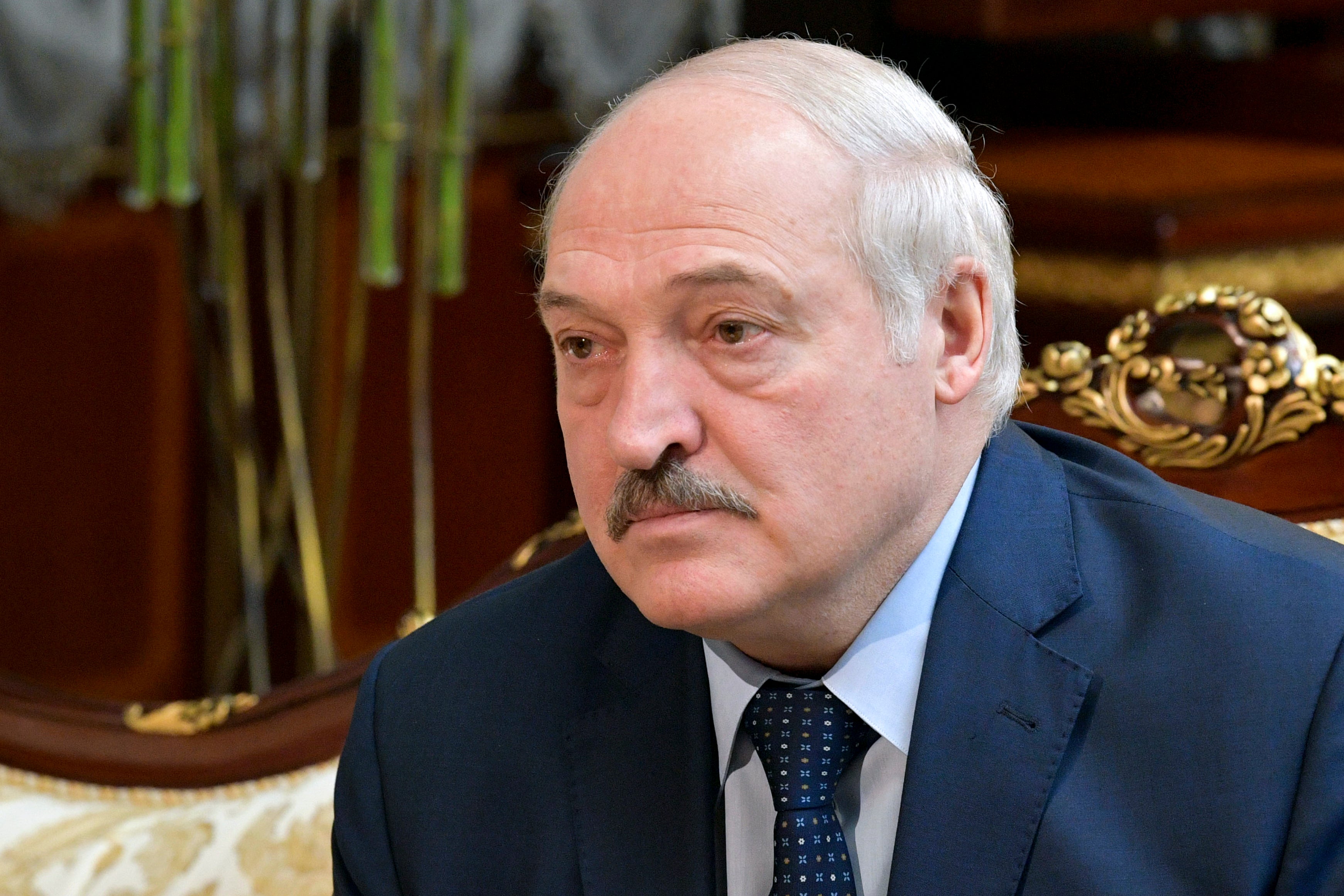Belarus leader heads to Moscow for talks on closer ties
Russian President Vladimir Putin is set to host his Belarusian counterpart for talks on closer integration between the two ex-Soviet neighbors

Your support helps us to tell the story
From reproductive rights to climate change to Big Tech, The Independent is on the ground when the story is developing. Whether it's investigating the financials of Elon Musk's pro-Trump PAC or producing our latest documentary, 'The A Word', which shines a light on the American women fighting for reproductive rights, we know how important it is to parse out the facts from the messaging.
At such a critical moment in US history, we need reporters on the ground. Your donation allows us to keep sending journalists to speak to both sides of the story.
The Independent is trusted by Americans across the entire political spectrum. And unlike many other quality news outlets, we choose not to lock Americans out of our reporting and analysis with paywalls. We believe quality journalism should be available to everyone, paid for by those who can afford it.
Your support makes all the difference.Russian President Vladimir Putin is set to host his Belarusian counterpart on Thursday for talks on closer integration between the two ex-Soviet neighbors.
The meeting follows allegations of a failed plot to assassinate Belarus’ President Alexander Lukashenko allegedly involving a blockade of the country’s capital, power cuts and cyberattacks. Belarusian and Russian security agencies arrested the alleged coup plotters in Moscow earlier this month.
Lukashenko has grown increasingly dependent on Russia's financial and political support after months of massive protests against his rule, and his visit to Moscow raised expectations that he could accept the Kremlin's push for a stronger union. He fueled such speculation over the weekend when he declared that he was preparing to make one of the most important decisions of his more than quarter-century rule.
The authoritarian Belarusian leader, who has been in power since 1994, has resisted earlier Russian attempts to forge a closer integration between the two countries and Moscow's push for opening a military base in Belarus, casting them as part of Moscow’s efforts to subdue its neighbor.
But Lukashenko's positions have weakened amid massive protests against his rule, which erupted after his reelection to a sixth term in office in a vote in August that the opposition saw as rigged. Authorities cracked down harshly on the protests, arresting more than 34,000 people and beating many. Most prominent opposition figures have fled Belarus or have since been jailed.
The U.S. and the European Union have responded by slapping sanctions on Belarus.
On Monday, Washington ramped up sanctions against Belarus, with the U.S. Treasury Department announcing it was revoking a license that had allowed transactions with nine top state-owned companies in Belarus since 2015. They include the oil company Belneftekhim, which accounts for 30% of the country’s industrial output.
Amid the Western pressure, Lukashenko has edged closer to Russia. He alleged that the U.S. was behind the botched coup attempt — a claim the White House has rejected.
In Wednesday's state of the nation address, Putin harshly criticized the West for failing to condemn the alleged coup attempt.
“The practice of organizing coups and planning political assassinations of top officials goes over the top and crosses all boundaries,” Putin said.
Sviatlana Tsikhanouskaya the main opposition challenger in Belarus' presidential election who moved to Lithuania after the vote under official pressure, dismissed the coup claim as an apparent “provocation of Russian and Belarusian security agencies.”